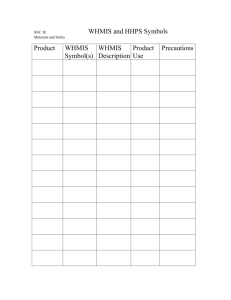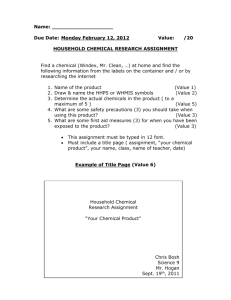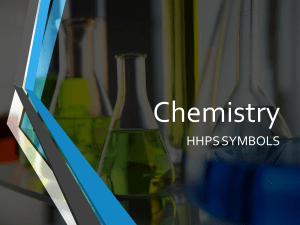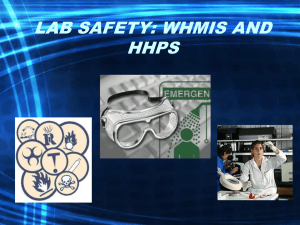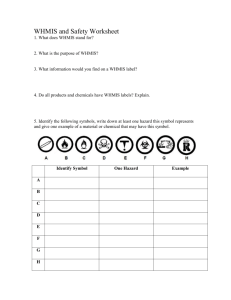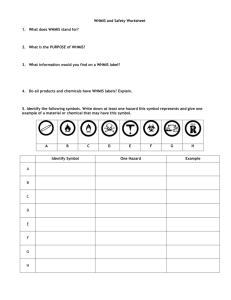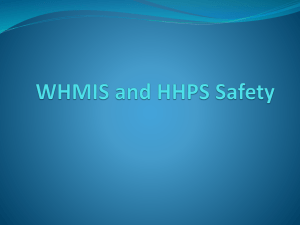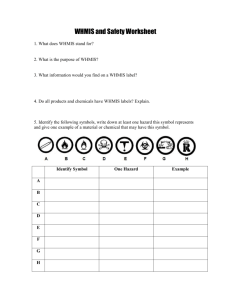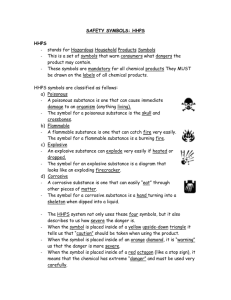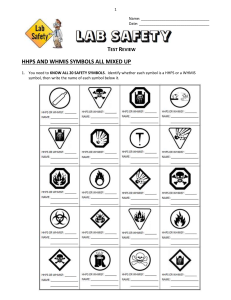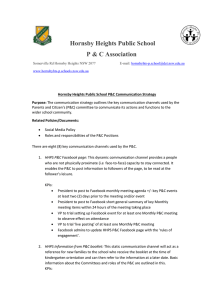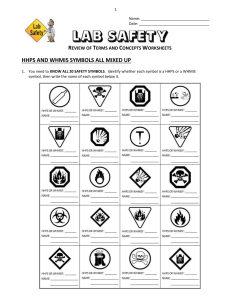Safe Science - Bowmanville High School
advertisement
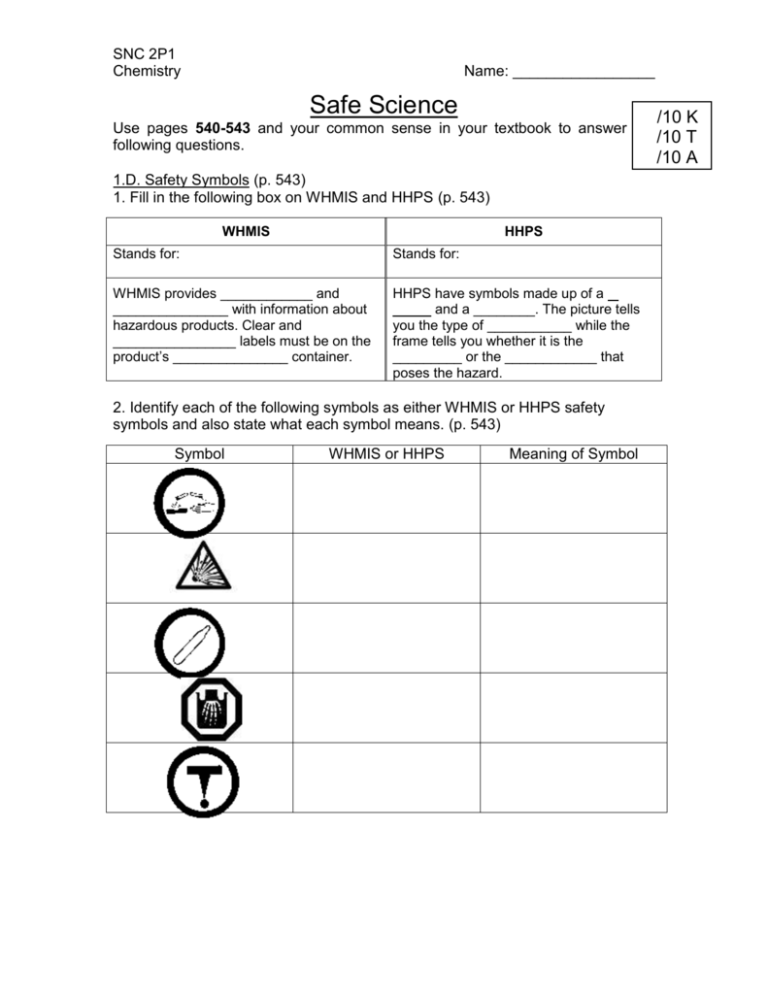
SNC 2P1 Chemistry Name: _________________ Safe Science /10 K Use pages 540-543 and your common sense in your textbook to answer the /10 T following questions. /10 A 1.D. Safety Symbols (p. 543) 1. Fill in the following box on WHMIS and HHPS (p. 543) WHMIS HHPS Stands for: Stands for: WHMIS provides ____________ and _______________ with information about hazardous products. Clear and ________________ labels must be on the product’s _______________ container. HHPS have symbols made up of a _____ and a ________. The picture tells you the type of ___________ while the frame tells you whether it is the _________ or the ____________ that poses the hazard. 2. Identify each of the following symbols as either WHMIS or HHPS safety symbols and also state what each symbol means. (p. 543) Symbol WHMIS or HHPS Meaning of Symbol SNC 2P1 Chemistry Symbol WHMIS or HHPS Meaning of Symbol 3. In the space provided, identify four products you would find in your house that have a HHPS safety warning on them. Then, state the use of the product and any safety precautions that you should keep in mind when using this product. Product Name HHPS Warning Product Use Safety Considerations SNC 2P1 Chemistry 1.A. Having a Safe Attitute (p. 540) Before you Begin 1. Come , with notes, text, writing utensils, etc. 2. Read and/or listen to all before you begin. 3. Inform the teacher of any or medical issues. Remove your lenses. 4. Know the location of exits and safety equipments such as , , , and During the Laboratory Activity 1. Keep yourself and your work area , tie back , tuck in , and roll up your 2. Keep aisles and work areas clear of , and leave all unnecessary materials at your . 3. Unless told otherwise, always wear . 4. Inform the of any injuries, spills, defective equipment or other “incidents”. 5. Always during a lab, never sit, or climb over desks. 6. Do not run, throw things, or around. Avoid sudden 7. No food or is allowed in the lab area. 8. Stay on and do not change the activity without ____. At the End of the Activity 1. Clean up your where it belongs. 2. Wash your and return all to with soap and water. 1.B.1 Chemicals (p. 541) 1. Assume that all chemicals are . 2. Never touch any ___________ with your hands. Use a __________________ 3. Always check the label to be sure you are taking the correct ____. Replace lids _______________ when you have taken what you need. 4. Put test tubes in a before pouring chemicals. 5. When instructed to smell a chemical, first .. This technique is called Wafting. 8. Wash glassware before and use. 9. Do not extra chemicals to the original container, and do not ______ them down the drain. 10. Follow the teacher’s instructions for disposal of all . 11. If you contact a chemical the affected area under cool water. Rinse eyes for _______ minutes. SNC 2P1 Chemistry 1.B.2 Heat Sources (p. 541) 1. Never leave flames or hotplates . Always assume a hotplate is ___ . 2. Keep all materials away from hot plates and flames. 3. When heating test tubes, always use a test tube , and point the mouth of the tube from yourself or others. Heat the half of the liquid in a test tube first. 4. If you burn yourself, immediately apply water and inform the . 1.B.3 Glass and Sharp Objects (p. 542) 1. Never use glassware that is 2. Dispose of broken glass in the __________ 3. Never use a ____________ when ____________ would work better. 4. Always cut _____________ from yourself and others. Cut downward on a ____________, ____________________, or _________________. 1.C. Accidents Can Happen (p. 542) Answer the following in PROPER SENTENCES! 1. What should you do if you are injured by contacting a chemical? 2. What should you do if you burn yourself? 3. What should you do if you get an electrical shock?
